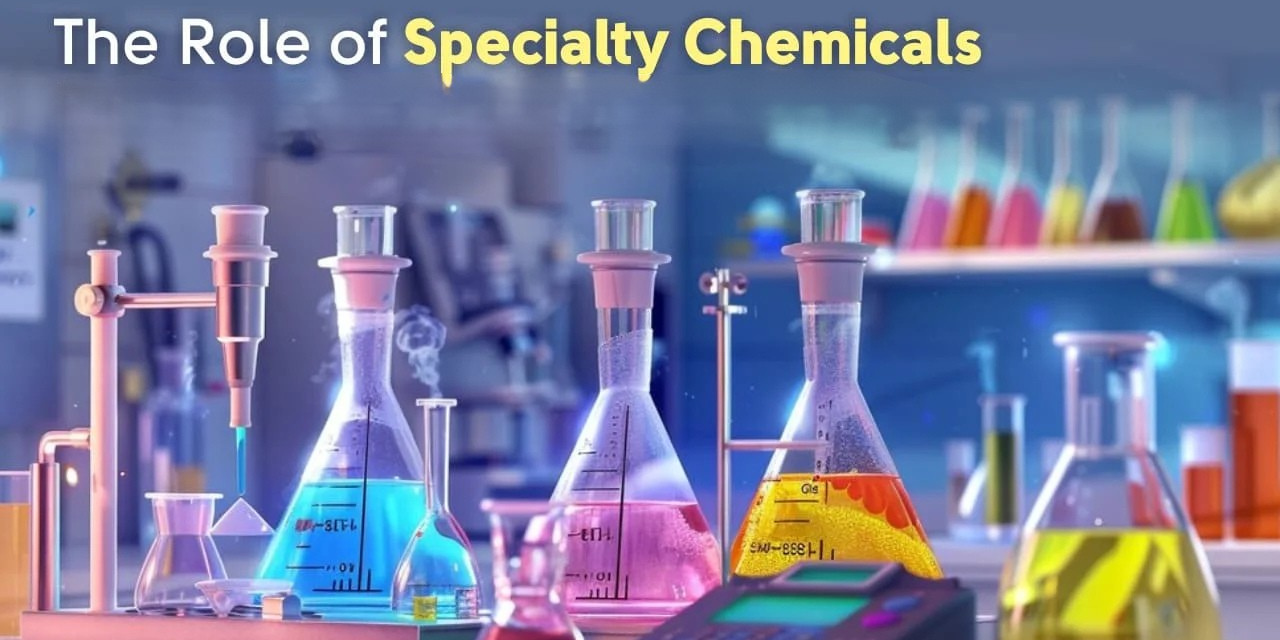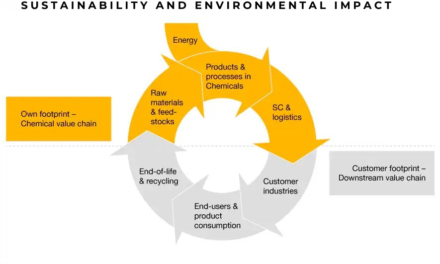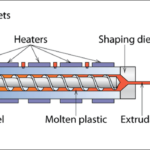Specialty chemicals play a crucial role in the development of high-performance materials, which are essential for a wide range of advanced applications, from aerospace and automotive to electronics and renewable energy. These materials are engineered to meet specific performance requirements, including enhanced durability, strength, heat resistance, lightweight characteristics, and electrical conductivity. Here’s how specialty chemicals contribute to the development of these high-performance materials:
1. Polymer Synthesis and Modification
- Role: Specialty chemicals are used to create and modify polymers that form the basis of many high-performance materials.
- Key Contributions:
- Advanced Polymers: Polymers like polyetheretherketone (PEEK), polyimides, and polyphenylene sulfide (PPS) are designed to withstand extreme conditions, such as high temperatures, chemical exposure, and mechanical stress.
- Polymer Blends and Composites: Specialty chemicals allow the blending of different polymers or the incorporation of reinforcing agents like glass fibers or carbon nanotubes to enhance the strength, flexibility, and thermal stability of materials.
- Conductive Polymers: Some polymers are chemically engineered to conduct electricity, which is critical for applications in electronics and energy storage.
2. Surface Coatings and Treatments
- Role: Surface treatments and coatings, often developed using specialty chemicals, significantly enhance the performance of materials in harsh environments.
- Key Contributions:
- Corrosion Resistance: Specialty coatings, such as epoxy or ceramic coatings, are applied to metals and alloys to protect against corrosion, especially in aerospace, marine, and automotive industries.
- Wear and Abrasion Resistance: Specialty chemicals are used to formulate coatings that provide high wear resistance, extending the lifespan of components in mechanical or industrial applications.
- Thermal Barriers: Thermal barrier coatings (TBCs) are made using specialty chemicals like zirconium oxide to protect components from high-temperature environments, such as in turbines and engines.
3. Nanomaterials and Nanotechnology
- Role: Specialty chemicals are integral in the synthesis and functionalization of nanomaterials, which are used to create nanocomposites and other high-performance materials.
- Key Contributions:
- Nanoparticles: Chemical processes enable the production of nanoparticles (e.g., carbon nanotubes, graphene, and nanoclays) that can be incorporated into materials to improve their mechanical, thermal, and electrical properties.
- Nanocomposites: The combination of nanoparticles with polymers or metals creates materials with enhanced strength, flexibility, conductivity, and barrier properties. These materials are crucial for lightweight automotive parts, electronic devices, and energy-efficient solutions.
- Self-healing Materials: Specialty chemicals enable the development of self-healing polymers and coatings that repair damage automatically, increasing the durability and reliability of materials in challenging environments.
4. Advanced Adhesives and Bonding Agents
- Role: Specialty adhesives and bonding agents are essential in joining high-performance materials, especially in industries where strength and longevity are paramount.
- Key Contributions:
- High-Strength Adhesives: Specialty adhesives are used in the automotive, aerospace, and electronics industries to bond composite materials, metals, and plastics without compromising structural integrity.
- Thermally Stable Adhesives: Epoxy-based adhesives and silicone-based adhesives are engineered to maintain strength under extreme temperatures, ensuring durability in high-performance applications like spacecraft and high-end electronics.
- Conductive Adhesives: In electronics, specialty conductive adhesives are used to bond electronic components while also providing the necessary electrical conductivity for proper functionality.
5. Ceramics and Refractories
- Role: Specialty chemicals contribute to the development of advanced ceramics and refractory materials used in extreme temperature and mechanical stress applications.
- Key Contributions:
- Advanced Ceramics: Materials such as alumina, silicon carbide, and zirconia are used in high-performance applications like semiconductor devices, cutting tools, and aerospace components due to their hardness, heat resistance, and electrical insulation properties.
- Refractory Materials: Specialty chemicals are used to create heat-resistant ceramics and refractory coatings for industrial furnaces, reactors, and engines, where high thermal stability is essential.
- Porous Ceramics: Porous materials made from specialty chemicals are used in applications such as filtration, catalysts, and sensors, where high surface area and chemical stability are critical.
6. High-Performance Composite Materials
- Role: Specialty chemicals are central to the production of composite materials, which combine multiple components to create materials with superior properties.
- Key Contributions:
- Epoxy Resins: Specialty chemicals like epoxy resins are used as matrices in composite materials (e.g., carbon fiber or glass fiber composites) for applications in aerospace, automotive, and sports equipment.
- Curing Agents: Curing agents and hardeners are used to polymerize resins, creating high-strength and heat-resistant composites that are lighter and more durable than metals.
- Prepregs: Pre-impregnated materials (prepregs) are used in aerospace and automotive industries to create high-performance composite structures with superior mechanical properties.
7. Thermal and Electrical Conductivity
- Role: Specialty chemicals enhance materials’ ability to conduct or insulate heat and electricity, which is essential in many high-performance applications.
- Key Contributions:
- Thermal Conductive Materials: Specialty chemicals like graphene, boron nitride, and carbon nanotubes are used to enhance the thermal conductivity of polymers, improving the heat dissipation capabilities in electronics and automotive industries.
- Electrical Conductive Materials: Conductive polymers and carbon-based materials are increasingly used in the development of wearable electronics, smart textiles, and sensors, where flexibility and conductivity are required.
- Thermal Insulation: Advanced thermal insulators based on specialty chemicals are crucial for applications in electronics, aerospace, and industrial systems where temperature control is critical.

















